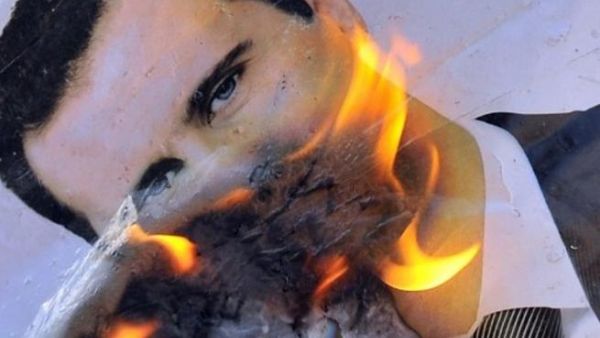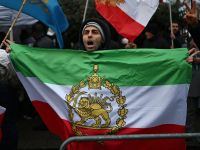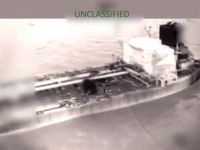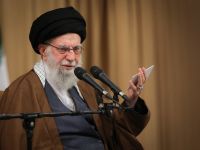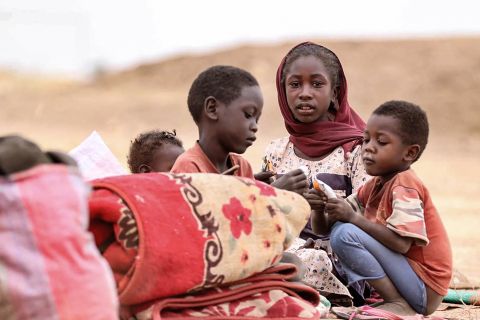Syrian President Bashar Assad urged his military Wednesday to boost its fight against rebels but his written call to arms only deepened a mystery over his whereabouts two weeks after a bomb penetrated his inner circle.
Assad has not spoken publicly since the July 18 bombing killed four of his top security official during a rebel assault on Damascus.
The president’s low profile has raised questions about whether he fears for his personal safety as the conflict escalates dramatically, while the United States called the Syrian president a coward for marshaling his forces from the pages of the army’s official magazine.
“We think it’s cowardly, quite frankly, to have a man hiding out of sight, exhorting his armed forces to continue to slaughter the civilians of his own country,” U.S. State Department spokesman Patrick Ventrell said.
Separately, the State Department said that Washington has now set aside a total of $25 million for aid to Syrian rebels, although the assistance remains limited to non-lethal supplies such as communications gear.
The Obama administration originally set aside $15 million to help the Syrian opposition, but some time ago added another $10 million to the amount available, Ventrell said.
“The $25 million number actually is the number we’re working from,” he told a regular daily news briefing.
“I don’t have the exact number of the money that has been has been spent ... but the bottomline is we’ve already spent millions of dollars of this $25 million pot and will continue as the requests come in,” he said.
A U.S. official Wednesday said the non-lethal aid was mostly for communications equipment, including encrypted radios.
Amid the week-old offensive by government forces on the city of Aleppo, officials and international organizations expressed their alarm at the methods being used by both sides in the conflict.
Sausan Ghosheh, the spokeswoman for the U.N. mission in Syria, said that international observers witnessed warplanes firing in Aleppo, Syria’s largest city, where intense fighting has been raging for 12 days.
Speaking to reporters in Damascus, Ghosheh said the situation in Aleppo was dire.
“Yesterday, for the first time, our observers saw firing from a fighter aircraft. We also now have confirmation that the opposition is in a position of having heavy weapons, including tanks,” she said, adding that for civilians, there “is a shortage of food, fuel, water and gas.” Tuesday’s posting of a video that showed rebels executing a notorious leader of a pro-regime militia in Aleppo, Zeino Berri, drew criticism from a Russian official, who said both sides in the conflict were guilty of human rights violations.
Russia’s Deputy Foreign Minister Gennady Gatilov said on Twitter Wednesday that “The harsh massacre of supporters of the government by the opposition confirms human rights violations are taking place on both sides.”
“It would be useful if Western and Arab politicians looked at the situation in Syria from this angle too. Everybody must stop violence,” he added.
The video was followed by one claiming to show rebel fighters entering Berri’s luxurious home and destroying pro-regime portraits and paraphernalia.
On the diplomatic front, Arab countries are pushing ahead with a symbolic U.N. General Assembly resolution that tells Assad to resign and turn over power to a transitional government. It also demands that the Syrian army stop its shelling and helicopter attacks and withdraw to its barracks.
A vote is set for Thursday morning.
The draft resolution takes a swipe at Russia and China by “deploring the Security Council failure” to act. Moscow and Beijing have used their veto three times to kill resolutions that might have opened the door to sanctions on Syria.
The 193-member General Assembly has no legal mechanism for enforcing such a resolution, but can carry moral and symbolic power if a vote is overwhelming.
Syria’s state news agency Wednesday claimed several victories by government forces in Aleppo, especially in the contested neighborhood of Salaheddin. It said dozens of “terrorists” were killed, including some with African nationalities.
Rebels gave a different account, saying they had extended their control over the strategic city by taking two police stations.
Opposition websites reported casualty figures of well over 100 people killed throughout the country Wednesday, most of them in the Greater Damascus area. Around 50 bodies were discovered in the town of Jdeidat Artouz, southwest of the capital, according to opposition groups.
While the regime and its supporters have claimed that the battle for Syria’s capital, which erupted last month, had ended, fierce shelling and skirmishes continued Wednesday in the greater Damascus area.
Residents of the Christian neighborhood of Bab Touma in the old city of Damascus reported a half-hour gun battle early in the day.
There was also ongoing fighting in several other cities, including Homs, where pro-opposition websites reported fierce fighting in the neighborhood of Qarabees, which the Syrian regime this week said had been “cleansed” of “terrorist groups.”
Assad’s appeal to his armed forces, on the 67th anniversary of the Syrian army’s founding, appeared in the army’s magazine and was carried on the state news agency.
“Today you are invited to increase your readiness and willingness for the armed forces to be the shield, wall and fortress of our nation,” Assad said.
The regime has characterized the rebellion as the work of foreign terrorists, and Assad said that “internal agents” are collaborating with them.
“Our battle is against a multifaceted enemy with clear goals. This battle will determine the destiny of our people and the nation’s past, present and future,” he said.
The newly appointed Defense Minister, Gen. Fahd al-Freij, whose predecessor was killed in the July 18 bombing, echoed Assad’s words during a televised speech.
“The armed forces will pursue the remnants of these groups wherever they are and eliminate them, preserving the homeland from their evils and restoring peace and security to the country,” he said.
Assad’s only appearance since the July 18 bombing came in a brief taped segment on state TV as he swore in the new defense minister. But the clip had no audio, and it was unclear where it was shot.
Where do you think Assad is? Should he stay out of harm's way? Tell us what you think below.


